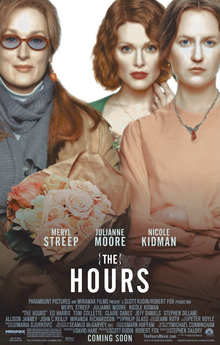The first time I watched The Hours was during the Lunar New Year in 2003. I didn’t quite get what the film was trying to tell me. 21 years later, on last Friday, I watched it again. This time, an experience shook me to my core.

In this article, I’ll be talking about the 3 suicides in the film. (Click here for the brief of the film.)
First, that of Virginia Woolf.
She’d suffered from mental illness for a long time. After many attempts to take her own life, she finally departed on March 28, 1941.
In the note she’d left to her husband Leonard, she wrote, “Everything has gone from me but the certainty of your goodness. I can’t go on spoiling your life any longer. I don’t think two people could have been happier than we have been.”
While her intention to take her own life may have been to free herself from the torture of her own mental illness, the “I can’t go on spoiling your life any longer” in her note to Leonard showed explicitly that she wanted to help get Leonard’s life back on track without the need to worry about her physical and metal status day after day.
Leonard Woolf was an intellectual, and so was Virginia. Fully aware of Leonard’s aspiration in his career, Virginia couldn’t bear the idea of Leonard wasting his precious life on nannying her day in day out. She wanted Leonard to own all the time he needed to pursue his aspiration.
By taking her own life, Virginia gifted Leonard a new life.
Second, Richard.
Richard, a middle-aged man physically and mentally ill, lived alone in New York. An old friend Clarissa, living in the same city, often paid a visit to Richard to keep him company. The two of them were once a couple when they were young. Richard, abandoned by his mother as a child, always had an air of uneasiness and sensitivity, which may have been what attracted Clarissa to him in the first place and had ever since possessed her. Even after their relationship dissolved, Clarissa continued to atay close to Richard. To Clarissa, Richard had always come before Sally, her girlfriend of 10 years.
A few minutes before Richard came off the window sill, Clarissa was a few steps away from him, looking at him straight into his eyes. Clarissa demanded him to come over to her. Richard stood still. That moment, he chose to take his destiny back into his own hands. Possibly the first and only time ever in his whole life.
“I’ve stayed alive for you. But now you have to let me go,” Richard said.
Sensitive and thoughtful, Richard knew that his existence would always get in the way of Clarissa’s happiness. If he continued to live, Sally may one day have had enough and leave Clarissa. Richard also suffered from mental illnesses. Perhaps part of his decision to depart was also to seek his own liberation, but a larger part was out of love for Clarissa, in the hope that her life would return to normal without him.
The pure and grand love Virginia and Richard had shown for Leonard and Clarissa, 21 years later I finally felt it. And it also dawned on me that a love this grand does exist. Because it exists right in my life.
Finally, Laura Brown.
To pursue the life she wanted, Laura dumped her whole family after giving birth to her daughter. The Richard mentioned above was her eldest son.
As a stay-at-home mother in the 1950s, Laura felt trapped. She might’ve not even loved men, but back then she had no other choice but to hide her true self.
She tried to take her own life when she was still pregnant with her daughter, but later regretted it, perhaps out of fear, perhaps because she realised there was another possibility, running away, as she later did.
Laura’s not being able to be her true self was unfortunate. But as a mother, she abandoned her own children. At the end of the film, seeing Laura in her old age wording her own mistakes in the past, it was hard not for one to get angry.
But what’s comforting, and I believe is the most important message the film intended to give, is that Laura’s son Richard, who’d been deeply hurt by her, did not lose his ability to love, not even to the slightest extent.
